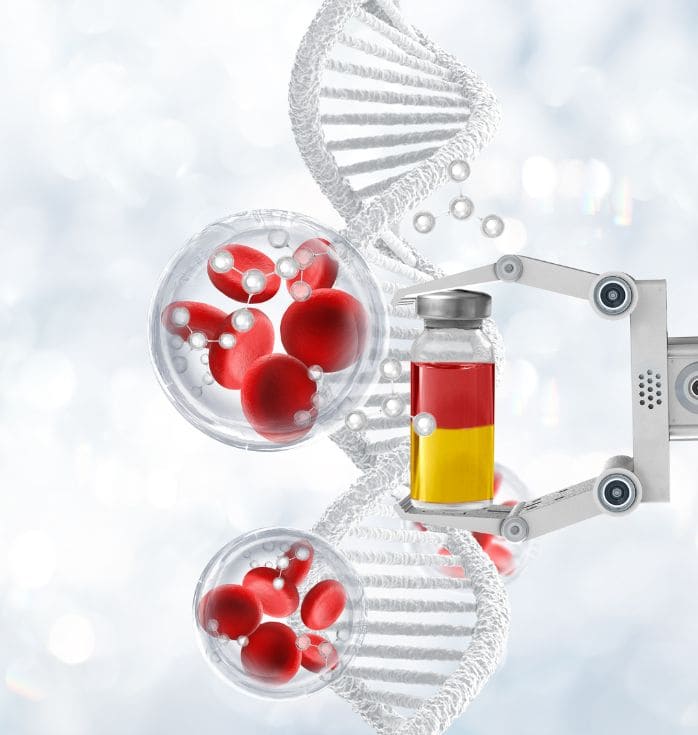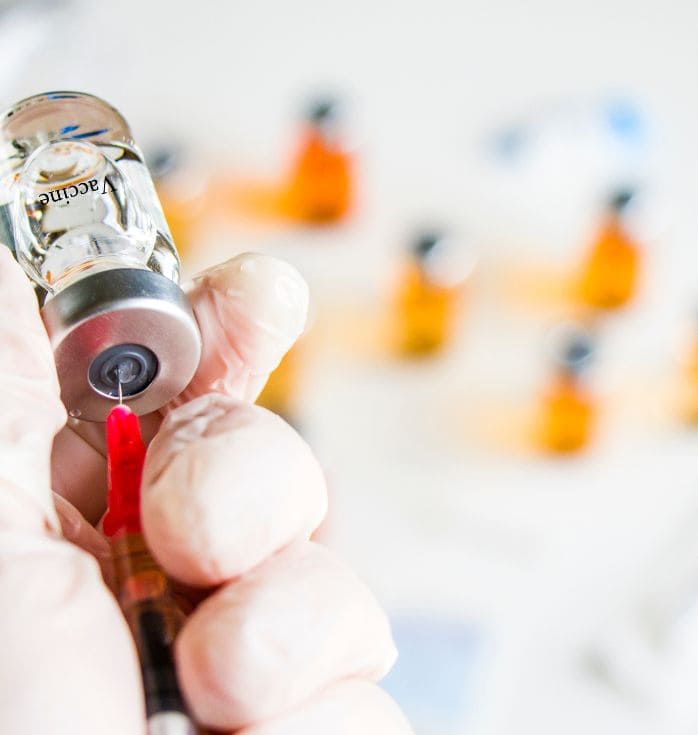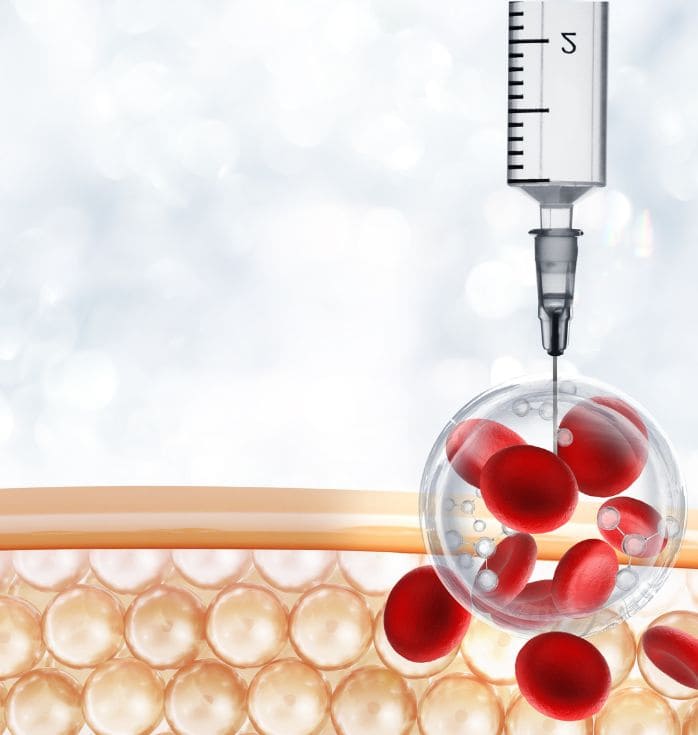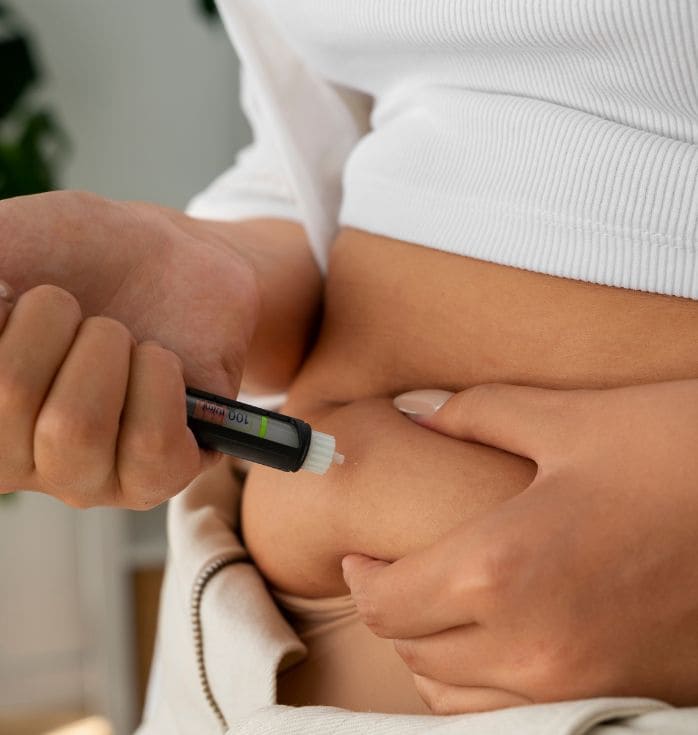

Stem Cells Colombia provides amazing cost benefits to patients seeking a potential type 1 diabetes cure. Treatment costs range from $5,000 to $15,000, which is much lower than U.S. prices of $20,000 to $50,000. Patients can save up to 70% on their stem cell treatment for diabetes costs at Colombian facilities while getting high-quality medical care.
Regencord’s facility in Pereira focuses on treating chronic and degenerative conditions, including diabetes, through complete stem cell therapy. The clinic excels with its modern medical facilities and experienced specialists who create individual-specific treatment plans based on each patient’s condition. Their commitment to medical regulations ensures a safe and effective stem cell treatment experience, offering hope for those wondering “Can type 1 diabetes be reversed?”
This article covers essential information about Regencord’s stem cell therapy for diabetes patients. It includes details about treatment protocols, costs, patient selection criteria, and success stories, including the latest type 1 diabetes cure news.



Diabetes mellitus, an autoimmune disorder affecting blood sugar levels, impacts over 400 million people worldwide, and experts predict this number will grow to more than 600 million by 2045. Stem cell therapy has shown promising breakthroughs that could help both Type 1 and Type 2 diabetes patients who need alternative treatments beyond traditional insulin injections.
Stem cells help fight diabetes in several ways. These pluripotent stem cells can turn into insulin-producing pancreatic islet cells and restore the body's natural glucose metabolism. Stem cells also help control immune responses by stopping T-cell growth and lowering inflammatory responses, which protects existing β-cells from autoimmune attacks.
Different types of stem cells show varying levels of success in treatment. Studies show that CD34+ bone marrow-derived hematopoietic stem cells work better than other cell types. Stem cells from bone marrow, umbilical cord, and adipose tissue offer unique benefits:
Stem cell treatments work well for both Type 1 and Type 2 diabetes, though they help in different ways. Type 1 diabetes treatment focuses on replacing dead insulin-producing cells and controlling autoimmune responses. A breakthrough case from 2024 showed a woman cured of type 1 diabetes who stopped needing insulin just 75 days after her stem cell treatment.
We used stem cells to improve insulin sensitivity and pancreatic function in Type 2 diabetes patients. A remarkable study from Shanghai showed a 59-year-old man with Type 2 diabetes who no longer needed insulin after getting islets made from his stem cells, demonstrating the potential for diabetes reversal.
Clinical trials have shown positive results in the quest for a diabetes cure. The VX-880 trial used stem cell-derived islet cells, and all patients started making insulin within three months. A Brazilian clinical trial showed most patients managed to keep their insulin independence for about three and a half years, and one patient stayed insulin-free for eight years.
The FDA approved Lantidra, making it the first allogeneic pancreatic islet cellular therapy to treat Type 1 diabetes patients who don't deal very well with severe hypoglycemia. Clinical studies showed that 21 out of 30 participants stayed insulin-independent for a year or more, and 10 participants didn't need exogenous insulin for over five years.
Some challenges still exist in the pursuit of a definitive type 1 diabetes cure. Patients might need immunosuppressive therapy after stem cell therapy, but researchers are working on innovative solutions like surgical devices that protect transplanted cells from immune responses. Scientists continue to study what happens after the first year of treatment, especially when it comes to possible autoimmune responses and long-term glycemic control.
Regencord pioneers stem cell therapy for diabetes in Colombia with its state-of-the-art laboratory facilities. The clinic’s medical team brings over 30 years of expertise in genetics, biotechnology, and pharmacology, offering new hope for those seeking to reverse type 1 diabetes.
The clinic follows rigorous protocols throughout the treatment lifecycle. Specialists in genetics, pharmacology, biology, biotechnology, and bacteriology staff their sterile laboratories, which operate under stringent quality standards.
Regencord's innovative treatments use stem cells' regenerative and immune-regulatory properties to treat metabolic disorders effectively, potentially offering a new type 1 diabetes treatment that could revolutionize patient care.
Clinical data shows Regencord's exceptional treatment outcomes. More than 90% of patients report positive results without any serious adverse events. These impressive statistics come from their complete approach to patient care and treatment optimization, contributing to the growing body of new research on diabetes.
A newer study, published between 2015 and 2019, looked at diabetes treatment outcomes in Colombia. The results showed conventional treatments achieved HbA1c control in only 52% of patients. Stem cell therapy at specialized clinics offers better outcomes through:
Regencord upholds exceptional quality standards through a multi-layered approach:
The production process follows international standards, specifically ISO 9001, ISO 13022, and ISO 22859 certifications. Each batch goes through complete quality testing that reviews:
The clinic's quality control pipeline guarantees cell safety and purity through:
Quality certificates provide full traceability, letting patients identify specific tests conducted on their cells. This meticulous attention to quality control reduces potential risks associated with stem cell treatments.
Advanced technologies help purify cell populations by removing potentially dangerous undifferentiated cells. This sophisticated quality management approach matches FDA guidelines for investigational new drug approvals.
Regencord conducts verification testing at different development stages. This practice ensures consistent quality throughout the manufacturing process and final product preparation. Their complete quality control strategy combines:
These measures help Regencord maintain its position as Colombia's leading provider of diabetes stem cell treatment. Patients receive advanced treatments under strictly controlled conditions, offering a potential path to reverse type 1 diabetes.


Stem cell therapy costs play a significant role in treatment decisions. Regencord’s pricing reflects both procedure complexity and the clinic’s steadfast dedication to quality standards.
Several key factors influence the final price at Regencord:
Diabetes treatment packages cost between $20,000 to $30,000. The final price depends on:
The base package has:
Most insurance providers still call stem cell therapy experimental, which limits coverage. Medicare only covers specific types of procedures:
These covered procedures focus on blood disorders rather than diabetes treatment. Regencord offers payment solutions to make treatment available to more people:
Financial Options:
The total investment often costs less than long-term conventional treatments. Patients should think about:
Regencord's pricing policies are transparent, with detailed cost breakdowns. The clinic's financial counselors help patients by:
Even with limited insurance coverage, many patients find the investment worthwhile. The long-term benefits and reduced need for conventional treatments make it attractive. The clinic's quality standards and flexible payment options make advanced stem cell therapy available to international patients seeking treatment in Colombia, addressing the question "Where can I get stem cell treatment for diabetes?"
Patient selection and a well-laid-out treatment approach play crucial roles in successful stem cell therapy for diabetes. Clinical trials show that proper screening and preparation make a big difference in treatment outcomes.
Medical teams start with a detailed evaluation of the patient’s medical history. Clinical studies show that patients need to meet specific criteria. They focus on:
Patients go through several preparatory steps before stem cell therapy begins. Clinical research shows the preparation phase has:
Clinical data shows that proper pre-treatment preparation significantly affects success rates. Patients with well-documented medical histories and stable health conditions show better treatment outcomes.
Recent clinical trials show the treatment process follows a structured timeline based on proven protocols:
Original Phase (Weeks 1-2)
Active Treatment Phase (Weeks 2-4)
Monitoring Phase (Months 1-3) Research shows patients respond within 90 days after treatment. Clinical data reveals that:
Long-term follow-up data shows varying success rates:
Recent studies show that early intervention leads to better outcomes. Patients receiving treatment within five years of diagnosis show superior results. Mesenchymal stem cell therapies account for 52.4% of clinical trials and make up the majority of successful treatments.
Regular monitoring and adjustments based on patient responses are key parts of the treatment process. Studies confirm successful engraftment happens within three months, and metabolic control improves gradually. Research suggests that stem cell therapy combined with proper lifestyle changes might work better and last longer, offering hope for those asking "Will there be a cure for type 1 diabetes?"

Regencord’s stem cell therapy offers a proven treatment choice for diabetes patients who want alternatives to standard management methods. Research shows soaring success rates, and many patients no longer need insulin while their glycemic control improves significantly. Treatment costs between $15,000 and $27,500 – much less than U.S. prices for the same quality of care.
The results speak for themselves. Stem cell therapy works well for both Type 1 and Type 2 diabetes patients. Research shows most patients stay insulin-free for about three and a half years, with some seeing benefits lasting up to eight years. Regencord’s quality control and advanced treatment methods help deliver the best possible results for qualified patients.
Scientists keep making progress in stem cell treatments for diabetes, bringing new hope to millions of people with this condition. Patients who want to try this treatment should review if they qualify and talk with their doctors about the expected results. Clinical data shows that starting treatment early often leads to better outcomes, particularly when patients make the right lifestyle changes to support their diabetes reversal journey. Transform Your Health with Stem Cell Therapy! Take the first step toward a diabetes-free future with Regencord. Get in touch today!
Stem cells are unique cells with the ability to develop into various cell types and repair damaged tissues. They are used in regenerative medicine, including treatments for cancer, neurodegenerative diseases, and injuries. Sources include bone marrow, cord blood, and embryos.
+1 888-540-4101


